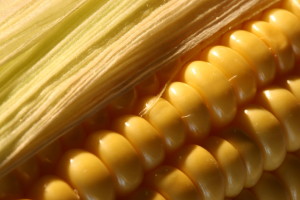Corn is a very good source of fibre.
Contents
Uses
- Corn fiber has many uses as a nutraceutical ingredient. It can be processed to extract corn fiber oil and gum. Corn fiber may also be used in the production of xylitol, a popular, low-calorie sweetener.
- As a food ingredient, corn fiber is often used in soups, beverages, cereals, dressings and sauces.
Benefits
- Corn is a food that gives us plenty of chewing satisfaction, and its high ratio of insoluble-to-soluble fiber is partly the reason. Past researchers have not been clear, however, about the ability of corn fiber to nourish our lower digestive tract. When you look at foods as a whole, they contain many different types of fiber, and when certain types of fiber reach the lower part of our large intestine (especially certain types of soluble fiber) they can be metabolized by intestinal bacteria into short chain fatty acids (SCFAs). This process not only helps support healthy populations of friendly bacteria in our large intestine, but also provides a direct supply of energy (in the form of SCFAs) to the cells that line our large intestine. With this benefit of this extra SCFA energy supply, our intestinal cells can stay healthier and function at a lower risk of becoming cancerous. Recent research has shown that corn can support the growth of friendly bacteria in our large intestine and can also be transformed by these bacteria into SCFAs. These SCFAs can supply energy to our intestinal cells and thereby help lower our risk of colon cancer. The amount of corn fiber analyzed in recent studies has been relatively high at 12 grams per day. That’s the same amount provided by about 2.5 cups of fresh corn. While that amount might be more than you would consume at a single meal, it’s an amount that you might easily consume over the course of several days. We suspect that future research will demonstrate the risk-reducing effects of smaller amounts of corn consumed over a longer period of time.
- Corn fiber is one of the keys to its well-documented digestive benefits. Recent research has shown that corn can support the growth of friendly bacteria in our large intestine and can also be transformed by these bacteria into short chain fatty acids, or SCFAs. These SCFAs can supply energy to our intestinal cells and thereby help lower our risk of intestinal problems, including our risk of colon cancer. The amount of corn fiber analyzed in recent studies has been relatively high at 12 grams per day. That’s the same amount provided by about 2.5 cups of fresh corn. While that amount might be more than any person would consume in a single meal, it’s an amount that a person might easily eat over the course of several days. We suspect that future research will demonstrate the risk-reducing effects of smaller amounts of corn consumed over a longer period of time.
Cautions
- Please talk to your doctor.
Interactions
- Please consult your nutritionist
Other names
n/a
References
Source:Whfoods, http://www.whfoods.com/genpage.php?tname=foodspice&dbid=90
Cooperativepurchasers, http://www.cooperativepurchasers.com/Ingredients/Dietary-Fiber/Corn-Fiber.html

